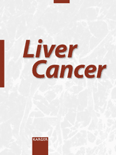
Liver Cancer
Scope & Guideline
Exploring innovative treatments and strategies for liver cancer.
Introduction
Aims and Scopes
- Hepatocellular Carcinoma Research:
The journal primarily emphasizes research on hepatocellular carcinoma, including its etiology, pathogenesis, and clinical management strategies. - Clinical Trials and Therapeutic Strategies:
A significant focus is on reporting results from clinical trials, particularly involving systemic therapies, including immune checkpoint inhibitors and tyrosine kinase inhibitors, for advanced HCC. - Multidisciplinary Approaches:
The journal promotes a multidisciplinary approach to liver cancer treatment, integrating insights from surgical oncology, medical oncology, radiology, and pathology. - Emerging Biomarkers and Novel Treatments:
Research on emerging biomarkers for early detection and prognostic evaluation of liver cancer, alongside studies on novel therapeutic agents and combination therapies. - Real-World Data and Guidelines:
The publication often includes real-world studies and expert consensus guidelines, reflecting practical approaches to liver cancer management in diverse populations.
Trending and Emerging
- Combination Immunotherapy:
There is a rising trend in studies investigating combination immunotherapy approaches, particularly involving immune checkpoint inhibitors paired with other systemic treatments or locoregional therapies. - Real-World Evidence and Data:
An increasing number of publications are focused on real-world evidence, which provides insights into treatment outcomes and patient demographics, helping to inform clinical practice. - Metabolic and Genetic Factors:
Research exploring the impact of metabolic disorders, such as obesity and diabetes, as well as genetic predispositions, is gaining traction in understanding hepatocellular carcinoma development and prognosis. - Patient Quality of Life and Treatment Tolerability:
Emerging studies are beginning to focus more on health-related quality of life and the tolerability of treatments, emphasizing the importance of patient-centered outcomes in liver cancer management. - Innovative Imaging Techniques:
The use of advanced imaging techniques for better diagnosis and treatment response evaluation is becoming a key area of interest, with studies investigating their prognostic value in clinical outcomes.
Declining or Waning
- Traditional Chemotherapy Approaches:
There is a noticeable decline in papers focusing on traditional chemotherapy methods, as the emphasis shifts towards targeted therapies and immunotherapy. - Single-Agent Therapies:
Research on single-agent therapies is becoming less frequent, with a growing trend towards combination therapies that demonstrate improved efficacy. - Basic Science without Clinical Application:
The journal appears to be moving away from purely basic science studies that do not have direct clinical applications, favoring translational research that bridges laboratory findings with clinical practice. - Focus on Non-HCC Liver Cancers:
There is a reduced emphasis on non-hepatocellular liver cancers, such as intrahepatic cholangiocarcinoma, as the journal concentrates more on HCC and its specific treatment challenges.
Similar Journals

Hepatology Communications
Connecting researchers and clinicians in hepatology.Hepatology Communications, published by Lippincott Williams & Wilkins, serves as a pioneering platform in the field of hepatology, dedicated to advancing the understanding of liver diseases and treatments. Since its inception in 2017, this open access journal has rapidly gained recognition, achieving an impressive Q1 ranking in Hepatology as of 2023, and appealing to a diverse audience of researchers, clinicians, and students alike. With its focus on high-quality research and clinical studies, the journal aims to facilitate impactful discussions and disseminate vital findings that address the challenges faced in liver health. Operating out of the United States, and accessible globally, Hepatology Communications is committed to fostering a collaborative research environment and enhancing the visibility of scholarly work in hepatology, ultimately driving forward innovations in patient care and treatment strategies.
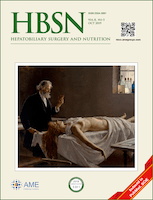
Hepatobiliary Surgery and Nutrition
Innovating hepatobiliary care for better patient outcomes.Hepatobiliary Surgery and Nutrition is a leading journal dedicated to advancing the fields of hepatobiliary surgery and nutritional science, published by AME Publishing Company. With a commitment to disseminate high-quality research, this journal serves as a vital platform for clinicians, researchers, and students alike to share their findings and insights related to liver and biliary health. The journal operates under an Open Access model, ensuring that cutting-edge research is readily available to a global audience. Although specific rankings and impact factors are currently not provided, the journal's focus on innovative surgical techniques and nutritional strategies underscores its importance in improving patient outcomes and shaping future practices in hepatobiliary medicine. Situated in Hong Kong, Hepatobiliary Surgery and Nutrition invites submissions that push the boundaries of knowledge in these crucial areas, fostering a collaborative environment for advancement in surgery and nutrition.
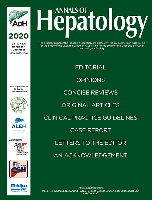
Annals of Hepatology
Unlocking the mysteries of liver health and disease.Annals of Hepatology is an esteemed open-access journal dedicated to the dynamic field of liver research and hepatology. Published by Elsevier España since 2002, this journal has established itself as a pivotal resource for researchers and clinicians alike, boasting a remarkable impact in the medical community with its 2023 rankings placing it in the Q2 quartile for Hepatology and Q1 quartile in Medicine (Miscellaneous). With an impressive Scopus rank of #20 out of 82 in the field of Hepatology and a notable 76th percentile standing, the journal is committed to disseminating high-quality, peer-reviewed articles that advance the understanding of liver diseases and their management. The editorial scope encompasses a broad range of topics, including liver pathology, therapeutic interventions, and public health implications related to hepatic disorders. Researchers, healthcare professionals, and students interested in the latest advancements in hepatology will find Annals of Hepatology an invaluable platform for sharing and accessing knowledge, with the convenience of open access enhancing global visibility and collaboration in this critical field of medicine.

JHEP Reports
Bridging research and application for a healthier tomorrow.JHEP Reports, published by ELSEVIER, stands at the forefront of scholarly communication in the fields of Gastroenterology, Hepatology, Immunology and Allergy, and Internal Medicine. As an Open Access journal since 2019, it provides a platform for the dissemination of high-quality research findings, making vital information readily accessible to a global audience. With a commendable impact characterized by a Q1 category ranking across four medical disciplines in 2023, JHEP Reports demonstrates its significance and influence, reflected in its impressive Scopus ranks—#11 in Gastroenterology and #14 in Internal Medicine, amongst others. This esteemed journal not only plays a critical role in advancing knowledge but also fosters collaboration among researchers, practitioners, and students keen on exploring innovations and breakthroughs in health sciences. At RADARWEG 29, 1043 NX AMSTERDAM, NETHERLANDS, JHEP Reports is committed to bridging the gap between research and application, ushering in a new era of informed and effective healthcare solutions.
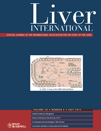
LIVER INTERNATIONAL
Transforming hepatological discourse with open access insights.LIVER INTERNATIONAL, with its ISSN 1478-3223 and E-ISSN 1478-3231, is a prestigious peer-reviewed journal published by Wiley in the United Kingdom. Established in 2003, it focuses on advancing the field of hepatology, covering a broad spectrum of topics including liver disease, hepatocellular carcinoma, and transplantation. Ranking #10 out of 82 in the Scopus category for Medicine - Hepatology and boasting a remarkable 88th percentile, LIVER INTERNATIONAL has secured its reputation as a leading journal, recognized as Q1 in the 2023 category quartiles. The journal emphasizes accessibility, offering an open access option to ensure that critical research findings reach a wider audience. By facilitating the dissemination of high-quality research, LIVER INTERNATIONAL plays a vital role in shaping contemporary hepatological discourse and bridging academic inquiry with clinical practice, making it an essential resource for researchers, healthcare professionals, and students alike.

International Cancer Conference Journal
Empowering Researchers to Transform Cancer CareInternational Cancer Conference Journal, published by Springer International Publishing AG, serves as a pivotal platform for the dissemination of cutting-edge research in the field of oncology. With a commitment to advancing the understanding, prevention, and treatment of cancer, this journal offers a forum for the presentation of innovative studies, clinical trials, and comprehensive reviews that cater to the needs of researchers, healthcare professionals, and students alike. Although currently not open access, the journal is dedicated to fostering collaboration and knowledge sharing within the cancer research community. The ISSN for this journal is 2192-3183, ensuring its listing within prominent academic databases for enhanced visibility. Hailing from Switzerland, the journal aspires to impact the global dialogue on cancer through rigorous peer-reviewed articles and special conference proceedings, making it an essential resource for those dedicated to the fight against cancer.
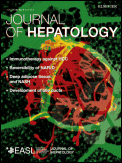
JOURNAL OF HEPATOLOGY
Fostering Innovation in Hepatology ResearchJOURNAL OF HEPATOLOGY, published by Elsevier, stands as a preeminent source in the field of Hepatology, with its impact underscored by a remarkable 2023 Category Quartile of Q1 and a Scopus rank of 3rd out of 82 journals, placing it in the 96th percentile for the discipline. Since its inception in 1985, this journal has been a vital conduit for the dissemination of pioneering research, clinical studies, and reviews related to liver diseases and their impact on global health. Although it currently does not offer open access options, the journal is committed to providing top-tier content to its readership—researchers, medical professionals, and students—in order to advance knowledge and foster innovation in hepatology. With a broad and inclusive scope, it aims to cover significant breakthroughs, therapeutic advancements, and epidemiological studies, continually pushing the boundaries of understanding in liver health. The journal is based in Amsterdam, Netherlands, and remains an essential resource for those dedicated to the progression of hepatologic science.

Hepatoma Research
Innovative Solutions for Hepatoma ChallengesHepatoma Research is a pivotal academic journal dedicated to advancing the field of hepatology and oncology, published by OAE PUBLISHING INC. Launched in 2019, this open-access journal has quickly established itself as a valuable resource for researchers and professionals dedicated to the study of liver cancer and related disorders. With an ISSN of 2394-5079 and E-ISSN 2454-2520, it offers insightful research articles and reviews aimed at enhancing clinical practices and understanding the complexities surrounding hepatoma. The journal is ranked in the Q3 category for both hepatology and oncology as of 2023, reflecting its commitment to quality amidst a competitive landscape. With its Scopus rankings placing it at the 47th percentile in hepatology and the 39th percentile in oncology, Hepatoma Research continues to be a crucial platform for disseminating groundbreaking findings. This journal underscores the importance of collaborative research and encourages submissions that contribute to the global discourse on liver cancer treatment and management.
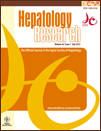
HEPATOLOGY RESEARCH
Innovative insights for a healthier liver and brighter future.Hepatology Research, ISSN 1386-6346 and E-ISSN 1872-034X, is a premier academic journal published by Wiley that serves the dynamic fields of Hepatology and Infectious Diseases. With an impressive 2023 impact factor and ranked Q2 in Hepatology and Q1 in Infectious Diseases, this journal stands out as a vital resource for researchers, professionals, and students. Covering a broad spectrum of topics related to liver health, the journal aims to disseminate cutting-edge research and insights from the converged years of 1997 to 2024. As an open-access platform, it fosters the global sharing of knowledge, providing valuable access to pioneering studies that address pressing issues in liver disease and its associated infections. Based in the United Kingdom, at 111 River St, Hoboken, NJ, Hepatology Research is pivotal for advancing scientific understanding and improving patient outcomes worldwide.

Hepatology International
Connecting experts to revolutionize liver health.Hepatology International is a premier academic journal dedicated to advancing the field of liver research and hepatology. Published by SPRINGER, this journal boasts a prestigious Q1 ranking in Hepatology as of 2023, underscoring its commitment to high-quality research dissemination. The journal’s scope encompasses a wide range of topics related to liver disease, including clinical, translational, and basic science studies. With its impact factor reflecting its relevance and influence in the field, Hepatology International serves as an essential resource for researchers, clinicians, and students aiming to keep abreast of the latest developments and breakthroughs. Though traditionally a subscription-based journal, it offers a vast array of insightful articles that contribute significantly to our understanding of hepatological conditions. The journal continues its trajectory of growth since its inception in 2008, anticipating a convergence of knowledge and innovation through to 2024. Located in the heart of New York City, this journal not only represents a crucial platform for global hepatology research but also fosters a collaborative community of experts dedicated to improving liver health worldwide.